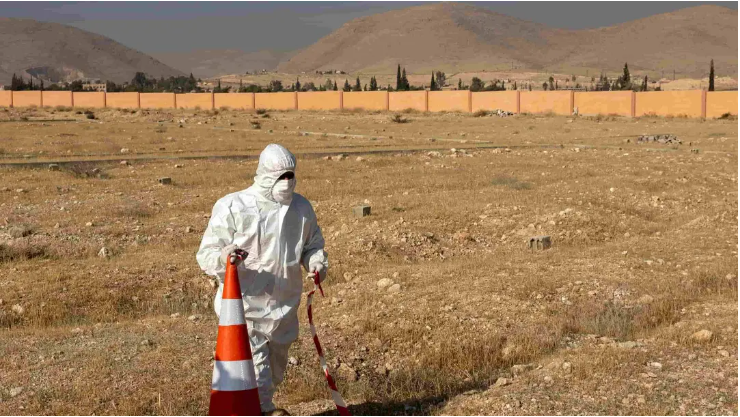As Moscow Confirms Assad's Asylum, Israel Seizes Syria's Golan Heights
The Kremlin confirmed on Monday that Russia has granted asylum to Bashar al-Assad and his family after they fled Syria over the weekend.
Facts
- The Kremlin confirmed on Monday that Russia has granted asylum to Bashar al-Assad and his family after they fled Syria over the weekend. Kremlin spokesman Dmitry Peskov confirmed the decision was made by Russian Pres. Vladimir Putin, stating that, "Such decisions certainly cannot be made without the head of state."[1]
- It comes after an offensive in which anti-government forces swept through Syria in a matter of days — seizing Aleppo, Hama, Deir ez-Zor, Daraa, and Homs by the end of Saturday, before entering the capital of Damascus on Sunday and prompting Assad to leave the country.[1]
- The assault was led by Hayat Tahrir al-Sham (HTS) — a former affiliate of Al-Qaeda which is designated as a terror organization in countries including the US. Turkish-backed militants from the Syrian National Army (SNA) also took part in the anti-government coalition, attacking and capturing positions held by the Kurdish-dominated Syrian Democratic Forces (SDF).[2][3][4]
- They're among the handful of actors that have sought to overthrow Assad since the start of the 2011 Syria war that never formally came to a close. While international support for recent events is currently unclear, countries including the US, UK, Qatar, Saudi Arabia, and Turkey have supported the militant groups opposed to Assad.[2][5][6][7][8]
- Meanwhile, Russia sought to keep Assad in power, permanently stationing troops in Syria and launching airstrikes at positions controlled by anti-government forces. Assad's government was also supported by Iran and Lebanon's Hezbollah.[9][10][11]
- Israel, which also intervened in the war, on Monday seized a demilitarized buffer zone in Syria's Golan Heights, as well as nearby positions, after Israeli Prime Minister Benjamin Netanyahu said the 1974 disengagement agreement with Syria had "collapsed," adding that "We will not allow any hostile force to establish itself on our border."[12]
Sources: [1]TASS, [2]The Guardian, [3]CNN, [4]Middle East Eye, [5]Cal State University, [6]The New York Times, [7]Declassified Media Ltd, [8]Reuters (a), [9]Reuters (b), [10]Los Angeles Times, [11]FDD's Long War Journal and [12]BBC News.
Narratives
- Pro-establishment narrative, as provided by Reuters. At long last, Assad's dictatorship over Syria has come to an end. It's unclear what comes next for the country but the US and other international partners look forward to working with all stakeholders in Syria to ensure that this opportunity is seized and that mistakes are avoided.
- Establishment-critical narrative, as provided by Caitlin's Newsletter. After years of trying, the US empire, and other interested parties such as Israel, have finally succeeded in toppling Assad. Now it's just a matter of seeing how much devastation is caused by this latest instance of regime change.







